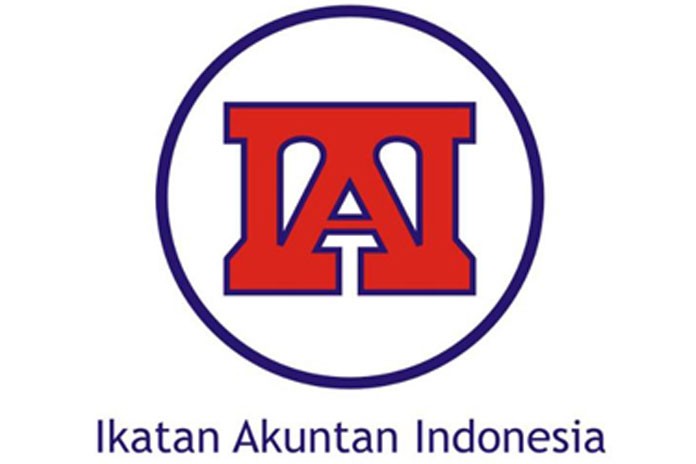Mengintegrasikan Keterampilan Kepemimpinan ke dalam Kurikulum Akuntansi : Persepsi Stakeholders dan Pengujian Model Pembelajaran Kooperatif
Abstract
Keywords
Full Text:
PDFReferences
REFERENSI
Adler, R. W., dan M. J. Milne. 1997. "Improving the quality of accounting students’ learning through action-orientated learning tasks". Accounting Education: an International Journal, 6 (3), pp: 191-215.
AICPA. 2009. AICPA core competency framework for entry into the accounting profession. Availableat:http://www.aicpa.org/interestareas/accountingeducation/resources/pages/corecompeten-cy.aspx.
Albrecht, W. S., dan R. J. Sack. 2000. Accounting Education: Charting the Course through a Perilous Future. Sarasota: Accounting Association.
Ballantine, J. A., dan P. M. Larres. 2004. "A critical analysis of students’ perceptions of the usefulness of the case study method in an advanced management accounting module". Accounting Education: an International Journal, 13 (2), pp: 171–190.
Ballantine, J. A., dan P. M. Larres. 2009. "Accounting Undergraduates’ Perceptions of Cooperative Learning as a Model for Enhancing their Interpersonal and Communication Skills to Interface Successfully with Professional Accountancy Education and Training". Accounting Education: an International Journal 1 (4), pp: 387–402.
Bean, D. F., dan R. A. Bernardi. 2007. "A Proposed Structure for an Accounting Ethics Course". Journal of Business Ethics Education, Vol. 4, pp: 27-54.
Berry, K. Rinehart, dan C. Troutman. 1998. "Integrating groups into the accounting classroom". Accounting Instructors’ Report, Vol. 21, pp: 4-6.
Bloch, J., P. C. Brewer, dan D. E. Stout. 2012. "Responding to the Leadership Needs of the Accounting Profession: A Module for Developing a Leadership Mindset in Accounting Students". Issues in Accounting Education, 27 (2), pp: 525-554.
Brewer, P. C. 2008. "Redefining management accounting: Promoting the four pillars of our profession". Strategic Finance, 89 (9), pp: 27–34.
Burney, L. L., dan M. Matherly. 2008. "Integrating Leadership Experiences into the Accounting Curriculum". Management Accounting Quarterly, 10 (1), pp: 51–58.
Candy, P. C., dan R. G. Crebert. 1991. "Ivory Tower to Concrete Jungle: The Difficult Transition from the Academy to the Workplace as Learning Environments". The Journal of Higher Education, 65 (5), pp: 570–592.
Carmichael, P., dan P. C. Brewer. 2009. "Financial leadership at Cintas". Strategic Management, 91 (2), pp: 25– 30.
Ciccotello, C. S., R. J. D’Amico, dan C. T. Grant. 1997. "An empirical examination of cooperative learning and student performance in managerial accounting". Accounting Education, 2 (1), pp: 1-7.
Commission, A. E. C. 1990. "Position Statement No. One: Objectives of Education for Accountants". Issues in AccountingEducation, 5 (2), pp: 307-312.
Fogarty, T. J., dan S. A. Al-Kazemi. 2011. "Leadership in Accounting: The New Face of an Old Profession.". Accounting and the Public Interest, 11, pp: 16-31.
Gabbin, A. L., dan L. I. Wood. 2008. "An Experimental Study of Accounting Majors’ Academic Achievement Using Cooperative Learning Groups". Issues in Accounting Education, 23 (3), pp: 391–404.
Gammie, B., E. Gammie, dan E. Cargill. 2002 "Personal skills development in the accounting curriculum". Accounting Education: an international journal, 11 (1), pp: 63–78.
Ghozali, I., dan J. Castellan. 2002. Statistik Non-Parametrik: Teori dan Aplikasi dengan Program SPSS. Semarang: Badan Penerbit Univeristas Diponegoro
Holt, D. L., dan J. G. Swanson. 1995. "Use of AECC directives and cooperative learning theory in introductory accounting classes". Journal of Education for Business, 70 (6), pp: 348–350.
Jackling, B., dan P. d. Lange. 2009 "Do accounting graduates’ skills meet the expectations of employers? A matter of convergence or divergence? ". Accounting Education: an International Journal, 18 ( 4), pp: 369–385.
Johnson. "Inc. Financial Leadership Development Program. Available at: http://www.careers.jnj.com/sites/default/files/ldp/pdf/FLDP_0.pdf. 2007-2010".
Kavanagh, M. H., dan L. Drennan. 2008. "What skills and attributes does an accounting graduate need? Evidence from student perceptions and employer expectations". Accounting and Finance, 49, pp: 279– 300.
Klibi, M. F., dan A. A. Oussii. 2013. "Skills and Attributes Needed for Success in Accounting Career: Do Employers’ Expectations Fit with Students’ Perceptions? Evidence from Tunisia". International Journal of Business and Management, 8 ( 8), pp: 118-132.
KPMG.LLP. 2011. Fast Forward National Leadership Program. Available at: http://www.kpmgcampus. com/FastForward/fast_forward.html.
Miglietti, C. 2002. "Using Cooperative Small Group in Introductory Accounting Classes: A Practical Approach". Journal of Education and Business, pp: 111-115.
Odafe, V. 1994. "Implementing change in the mathematics classroom through the use of the cooperative small group instructional technique (C.S.G.I.T.)". Connecticut Mathematics Journal, Vol 18 (2), pp: 28–36.
O’Moore, M., dan J. Lynch. 2010. "Leadership, working environment and workplace bullying". International Journal of Organization Theory and Behavior, 10 (1), pp: 95-117.
PMK.25/PMK.01/2014. Peraturan Menteri Keuangan No. 25/PMK.01/2014 tentang Akuntan Beregister Negara.
PricewaterhouseCoopers. 2011. PwC Leadership Adventure. tersedia pada link: http://www.pwc.com/us/en/careers/pwctv/joining/student-programs/leadership adventure/ index.jhtml. .
Thomson, J. C. 2008. "Financial leadership: What’s it all about? ". Strategic Finance, 89 (10), pp: 35–41.
Viator, R. E. 2011. "The Relevancy of Transformational Leadership to Nontraditional Accounting Services: Information System Assurance and Business Cunsulting". Journal of Information System, 15 (2), pp: 99-125.
Violette, G., dan D. Chene. 2008. "Campus recruiting: What local and regional accounting firms look for in new hires". The CPA Journal, 78 (12), pp: 66–68.
Yukl, G. A. 2001. Leadership in Organization, second edition. Ney Jersey: Prentice Hall.
Zaid, O. A., dan A. Abraham. 1994. "Communication Skills in Accounting Education: Percepsion of Academics, Employers and Graduates Accountant". Accounting Education, 3 (3), pp: 205-221.
DOI: http://dx.doi.org/10.35448/jrat.v12i2.6146
Refbacks
- There are currently no refbacks.
pISSN 1979-682X eISSN 2528-7443
Jurnal Riset Akuntasi Terpadu (JRAT) is licensed under a Creative Commons Attribution 4.0 International License







